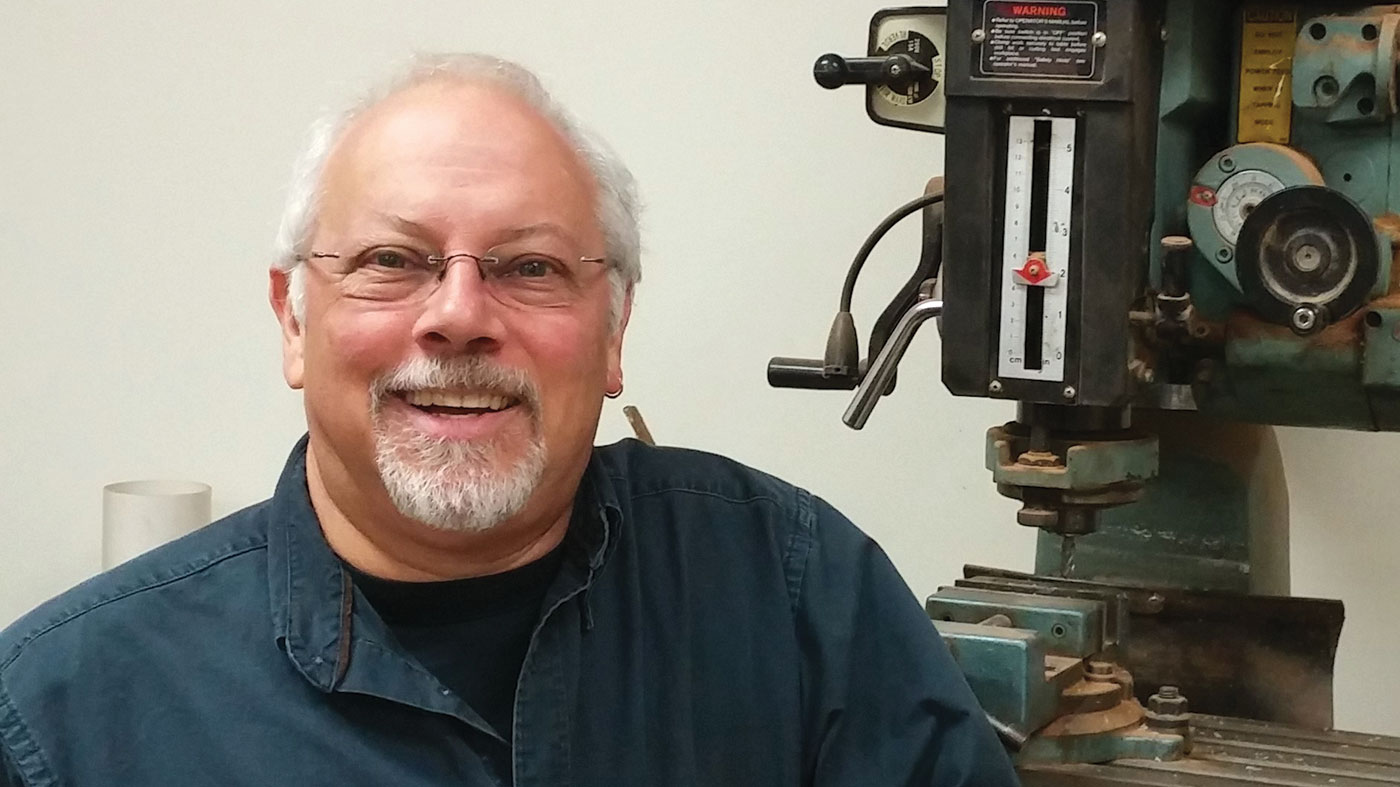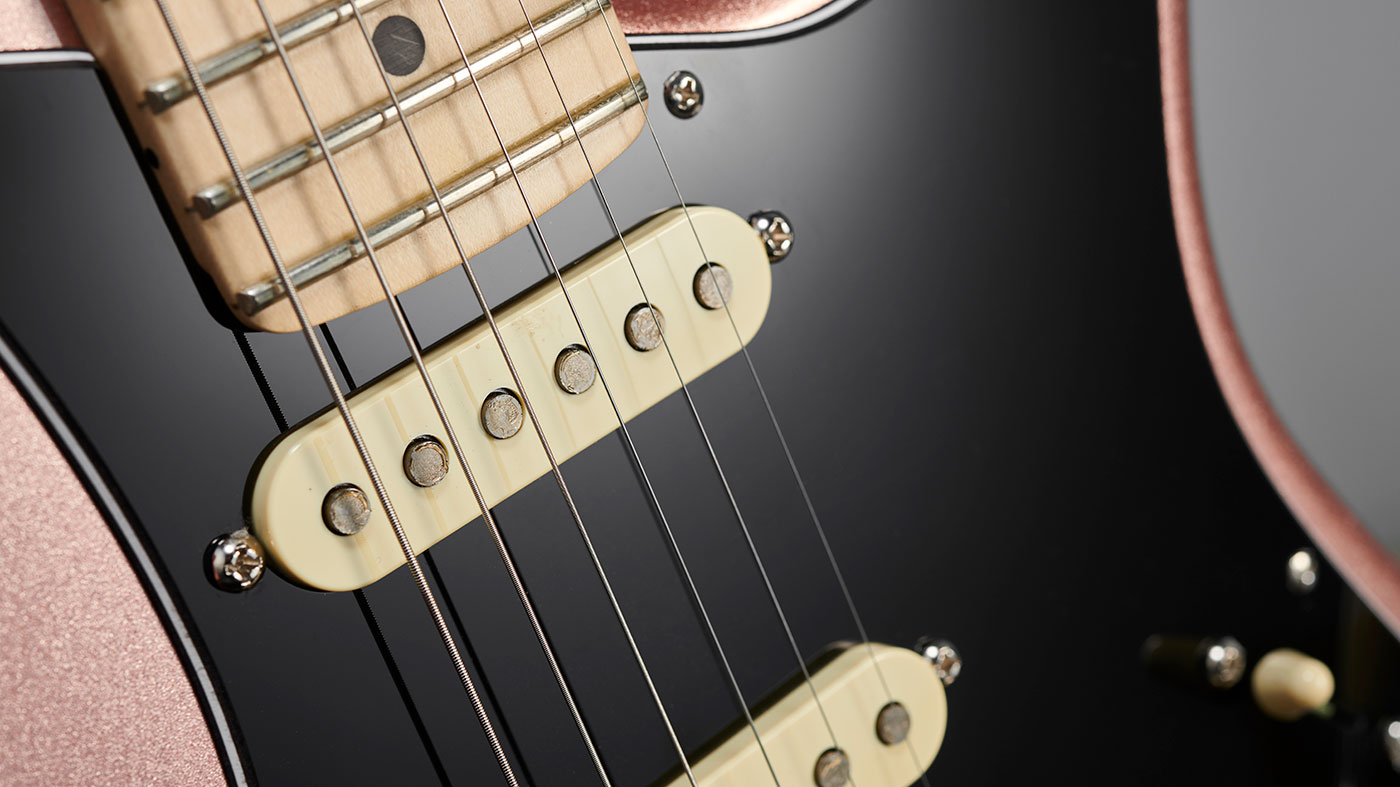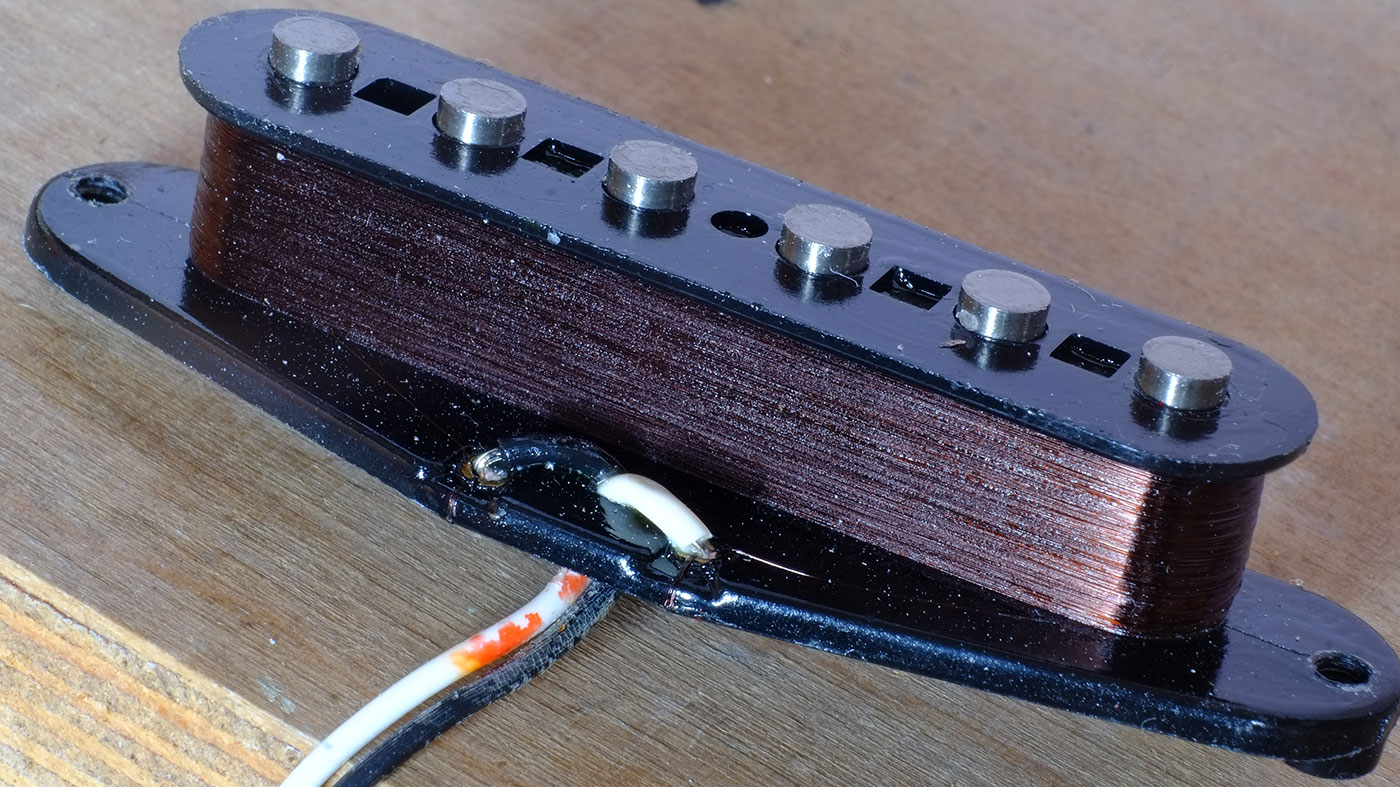
Want all the hottest music and gear news, reviews, deals, features and more, direct to your inbox? Sign up here.
You are now subscribed
Your newsletter sign-up was successful
Designing a new pickup and making it in your shed can be a fun pastime. But designing a pickup that will be part of the biggest electric guitar company’s Big New Launch is an entirely different matter altogether. Tim Shaw seems to take it all in his stride.
It certainly helps that he’s been doing it a while and, based in Nashville, he has some helpful and talented friends - such as Grammy Award-winning producer Dave Cobb who unwittingly helped Tim onto the trail that would lead to the new Fender Yosemite single coils.
Alnico 4 had never been extensively used before as rod magnets; there is no reason it couldn’t have been
“Fender wanted stuff [for the new Performer series] with flush pole pieces, which I thought, ‘Okay, that de-complicates a bunch of stuff, but aside from that I was pretty much given free rein,” Tim explains. “It occurred to me that, pretty much, Alnico 4 had never been extensively used before as rod magnets; there is no reason it couldn’t have been.
“As you know, the various grades are recipes, mixtures of different materials, so Alnico 4, in terms of its power and its recipe, ends up somewhere between Alnico 2 and 5. For instance, Alnico 2 is 17 per cent nickel, 10 per cent aluminium, 12.5 per cent cobalt and the balance is iron. Alnico 4 is 28 per cent nickel, 12 per cent aluminium, 5 per cent cobalt and, again, the rest is iron.
“Alnico 4 is a bit more powerful than 2 - some measurements are higher, some lower - but it’s kind of in the ballpark. Gibson used Alnico 4 on the Firebirds because they didn’t want something as bright and clanky as Alnico 5.”

Esquire inspired
[Dave Cobb's Esquire] has become its own thing and that led me to believe I was on to something with this
So what part did Dave Cobb play? “In the world of country-music producers, he’s a god,” asserts Tim. “About 18 months ago he comes by my ’shop and he has a ’69 Esquire with a pickup that had been rewound three or four times and he hated it. So I made a Tele bridge pickup using Alnico 4 rod magnets and he really liked it.
“The Esquire is back in use in Dave’s studio and in the ensuing months I had artists come in and say, ‘Oh, I played the Esquire - it really sounds great!’ The guitar has become its own thing and that led me to believe I was on to something with this, so I started making up a series of pretty much all flat-top Alnico 4 pickups and just learning how the material worked. Sonically, it’s brighter than Alnico 2 but not as bright as 5.
Want all the hottest music and gear news, reviews, deals, features and more, direct to your inbox? Sign up here.
“Joey Brasler [vice president product development for Fender Electric Guitars and Basses] came to us from Guitar Center and he’s an excellent guitar player with really good ears. He came here for a week, a little over as year ago, and we worked through almost the entire series. We played and he approved most of the pickups that week.
“The middle and neck Yosemites actually happened relatively quickly for the Strat, but the bridge actually ended up with Alnico 2 magnets rather than 4 because the 4 sounded a little too harsh in bridge position. Joey asked if we could knock a little bit off - I didn’t want to put any more wire on it so we changed magnets. What do you think of them?”
We related our experiences, not least that the Yosemites sound almost ‘enhanced’. We ventured that - compared with other Strats we have as reference - with the Performer Strat it’s almost like we’re listening to a quite classy Strat post-EQ, whereas our reference Strats are pre-EQ.
The Performer in isolation, then, sounds as if it’s enhanced to maximise how it sits in a recording, for example, where many of us will give our Strat a little sheen to maximise the sparkle, some compression and trim the low-end.
“Actually, I find that really interesting,” Tim responds. “Really interesting. As Joey was playing the new pickups he said, ‘These sound like you’ve recorded them in a great studio with a good amp and you’re hearing them back in post-production.’ Precisely what you said.”

Lacquer
Unlike a vacuum wax potting process, which penetrates the whole coil, shellac doesn’t do that
Certainly, if you ‘listen’ from a spec sheet, you’re going to struggle with these pickups. Along with the ‘wrong’ magnets they have a high DCR. We asked Tim if he was using a finer wire. He replies:
“Yes, it’s a little bit finer. The first ones I made, which were entirely stock, were a little brighter than I’d like, so, yes, there’s a little more wire on them than vintage pickups have, but that’s kind of what it seemed to want. A lot of times when you’re using an alternative magnet material you wind something with a spec you know, then you see what it does and make changes. So, in this case the added wire gives me more inductance and put simply, yes, I am rolling off highs.”
And the shellac ‘potting’? “We used it in the ’60s [at Fender]. We know the ’63 P-Bass-era is shellac, [but] we don’t know why. I shellac’d for years instead of waxing and now I do both. It’s not used hot; it’s Zinsser Bulls Eye Shellac, about as generic in America as it gets. So the coils get a five‑minute dunk.
“Unlike a vacuum wax potting process, which penetrates the whole coil, this doesn’t do that,” Tim explains. “Some people use lacquer, but that tends to be more viscous than shellac - it depends on the type.
“If you’re using a catalysed lacquer, then that cures like cement. Shellac basically doesn’t. It gets hard, but to rate them in descending ‘sparkle modification’ order there’s nothing, shellac, most lacquers, and then wax.
“The wax will chop off more high-end than the lacquer, which chops off more high-end - to my ear - than the shellac, which chops off a little bit more than nothing at all. So, it’s something that has historic precedent at Fender, and it’s something I use all the time.”
Guitarist is the longest established UK guitar magazine, offering gear reviews, artist interviews, techniques lessons and loads more, in print, on tablet and on smartphones
Digital: http://bit.ly/GuitaristiOS
If you love guitars, you'll love Guitarist. Find us in print, on Newsstand for iPad, iPhone and other digital readers


